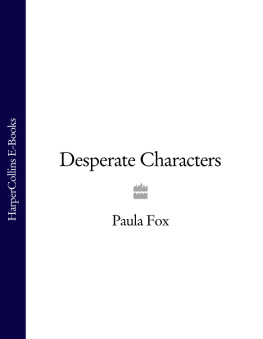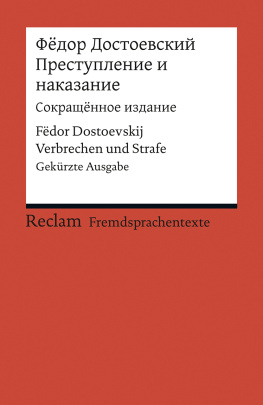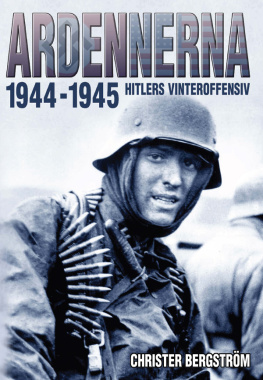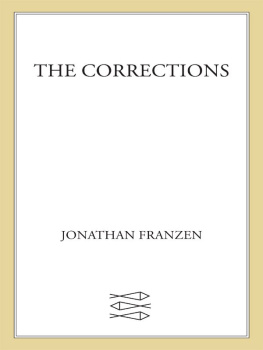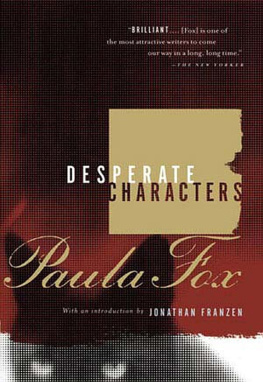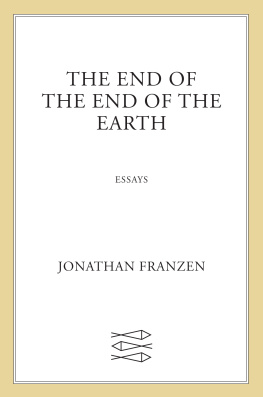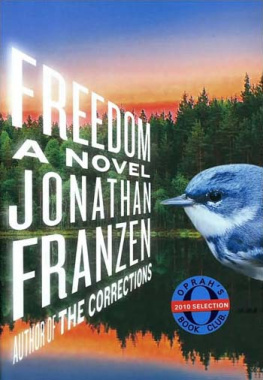Paula Fox and Jonathan Franzen - Desperate Characters
Here you can read online Paula Fox and Jonathan Franzen - Desperate Characters full text of the book (entire story) in english for free. Download pdf and epub, get meaning, cover and reviews about this ebook. publisher: HarperCollins Publishers, genre: Detective and thriller. Description of the work, (preface) as well as reviews are available. Best literature library LitArk.com created for fans of good reading and offers a wide selection of genres:
Romance novel
Science fiction
Adventure
Detective
Science
History
Home and family
Prose
Art
Politics
Computer
Non-fiction
Religion
Business
Children
Humor
Choose a favorite category and find really read worthwhile books. Enjoy immersion in the world of imagination, feel the emotions of the characters or learn something new for yourself, make an fascinating discovery.
- Book:Desperate Characters
- Author:
- Publisher:HarperCollins Publishers
- Genre:
- Rating:4 / 5
- Favourites:Add to favourites
- Your mark:
- 80
- 1
- 2
- 3
- 4
- 5
Desperate Characters: summary, description and annotation
We offer to read an annotation, description, summary or preface (depends on what the author of the book "Desperate Characters" wrote himself). If you haven't found the necessary information about the book — write in the comments, we will try to find it.
Desperate Characters — read online for free the complete book (whole text) full work
Below is the text of the book, divided by pages. System saving the place of the last page read, allows you to conveniently read the book "Desperate Characters" online for free, without having to search again every time where you left off. Put a bookmark, and you can go to the page where you finished reading at any time.
Font size:
Interval:
Bookmark:

Rereading Desperate Characters
On a first reading, Desperate Characters is a novel of suspense. Sophie Bentwood, a forty-year-old Brooklynite, is bitten by a stray cat to which shes given milk, and for the next three days she wonders what the bite is going to bring her: death of rabies? shots in the belly? nothing at all? The engine of the book is Sophies cold-sweat dread. As in more conventional suspense novels, the stakes are life and death and, perhaps, the fate of the Free World. Sophie and her husband, Otto, are pioneering urban gentry in the late 1960s, when the civilization of the Free Worlds leading city seems to be crumbling under a barrage of garbage, vomit, and excrement, vandalism, fraud, and class hatred. Ottos longtime friend and law partner, Charlie Russel, quits the firm and attacks Otto savagely for his conservatism. Otto complains that a slovenly rural familys kitchen says one thing to himit says dieand, indeed, this seems to be the message he gets from almost everything in his changing world. Sophie, for her part, wavers between dread and a strange wish to be harmed. Shes terrified of a pain shes not sure she doesnt deserve. She clings to a world of privilege even as it suffocates her.
Along the way, page by page, are the pleasures of Paula Foxs prose. Her sentences are small miracles of compression and specificity, tiny novels in themselves. This is the moment of the cat bite:
She smiled, wondering how often, if ever before, the cat had felt a friendly human touch, and she was still smiling as the cat reared up on its hind legs, even as it struck at her with extended claws, smiling right up to that second when it sank its teeth into the back of her left hand and hung from her flesh so that she nearly fell forward, stunned and horrified, yet conscious enough of Ottos presence to smother the cry that arose in her throat as she jerked her hand back from that circle of barbed wire.
By imagining a dramatic moment as a series of physical gesturesby paying close attentionFox makes room here for each aspect of Sophies complexity: her liberality, her self-delusion, her vulnerability, and, above all, her married-persons consciousness. Desperate Characters is the rare novel that does justice to both sides of marriage, both hate and love, both her and him. Otto is a man who loves his wife. Sophie is a woman who downs a shot of whiskey at six oclock on a Monday morning and flushes out the kitchen sink making loud childish sounds of disgust. Otto is mean enough to say, Lotsa luck, fella when Charlie leaves the firm; Sophie is mean enough to ask him, later, why he said it; Otto is mortified when she does; Sophie is mortified for having mortified him.
The first time I read Desperate Characters, in 1991, I fell in love with it. It seemed to me obviously superior to any novel by Foxs contemporaries John Updike, Philip Roth, and Saul Bellow. It seemed inarguably great. And because Id recognized my own troubled marriage in the Bentwoods, and because the novel had appeared to suggest that the fear of pain is more destructive than pain itself, and because I wanted very much to believe this, I reread it almost immediately. I hoped that the book, on a second reading, might actually tell me how to live.
It did no such thing. It became, instead, more mysteriousbecame less of a lesson and more of an experience. Previously invisible metaphoric and thematic densities began to emerge. My eye fell, for example, on a sentence describing dawns arrival in a living room: Objects, their outlines beginning to harden in the growing light, had a shadowy, totemic menace. In the growing light of my second reading, I saw every object in the book begin to harden in this way. Chicken livers, for example, are introduced in the opening paragraph as a delicacy and as the centerpiece of a cultivated dinneras the essence of old-world civilization. (You take raw material and you transform it, the leftist Leon remarks much later in the novel. That is civilization.) A day later, after the cat has bitten Sophie and she and Otto have started fighting back, the leftover livers become bait for the capture and killing of a wild animal. Cooked meat is still the essence of civilization; but what a much more violent thing civilization now appears to be! Or follow the food in another direction; see Sophie, shaken, on a Saturday morning, trying to shore up her spirits by spending money on a piece of cookware. She goes to the Bazaar Provenal to buy herself an omelet pan, a prop for a hazy domestic dream of French ease and cultivation. The scene ends with the saleswoman throwing up her hands as though to ward off a hex and Sophie fleeing with a purchase almost comically emblematic of her desperation: an hourglass egg timer.
Although Sophies hand is bleeding in this scene, her impulse is to deny it. The third time I read Desperate CharactersId assigned it in a fiction-writing class that I was teachingI began to pay more attention to these denials. Sophie issues them more or less nonstop throughout the book: Its all right. Oh, its nothing. Oh, well, its nothing. Dont talk to me about it. THE CAT WASNT SICK! Its a bite, just a bite! I wont go running off to the hospital for something as foolish as this. Its nothing. Its much better. Its of no consequence. These repeated denials mirror the underlying structure of the novel: Sophie flees from one potential haven to another, and each in turn fails to protect her. She goes to a party with Otto, she sneaks out with Charlie, she buys herself a present, she seeks comfort in old friends, she reaches out to Charlies wife, she tries to phone her old lover, she agrees to go to the hospital, she catches the cat, she takes to bed, she tries to read a French novel, she flees to her beloved country house, she thinks about moving to another time zone, she thinks about adopting children, she destroys an old friendship: nothing brings relief. Her last hope is to write to her mother about the cat bite, to strike the exact note calculated to arouse the old womans scorn and hilarityto make her plight into art, in other words. But Otto throws her ink bottle at the wall.
What is Sophie running from? The fourth time I read Desperate Characters, I hoped Id get an answer. I wanted to figure out, finally, whether its a happy thing or a terrible thing that the Bentwoods life breaks open on the last page of the book. I wanted to get the final scene. But I still didnt get it. I consoled myself with the idea that good fiction is defined, in large part, by its refusal to offer the easy answers of ideology, the cures of a therapeutic culture, or the pleasantly resolving dreams of mass entertainment. Maybe Desperate Characters wasnt so much about answers as about the persistence of questions. I was struck by Sophies resemblance to Hamletanother morbidly self-conscious character who receives a disturbing and ambiguous message, undergoes torments while trying to decide what the message means, and finally puts himself in the hands of a providential divinity and accepts his fate. For Sophie Bentwood, the ambiguous message comes not from a ghost but from a cat bite, and her agony is less about uncertainty than about an unwillingness to face the truth. Near the end, when she addresses a divinity and says, God, if I am rabid, I am equal to what is outside, its not a moment of revelation. Its a moment of relief.
A book that has fallen even briefly out of print can put a strain on the most devoted readers love. In the way that a man might regret certain shy mannerisms in his wife that cloud her beauty, or a woman might wish that her husband laughed less loudly at his own jokes, though the jokes are very funny, Ive suffered for the tiny imperfections that might prejudice potential readers against
Next pageFont size:
Interval:
Bookmark:
Similar books «Desperate Characters»
Look at similar books to Desperate Characters. We have selected literature similar in name and meaning in the hope of providing readers with more options to find new, interesting, not yet read works.
Discussion, reviews of the book Desperate Characters and just readers' own opinions. Leave your comments, write what you think about the work, its meaning or the main characters. Specify what exactly you liked and what you didn't like, and why you think so.

